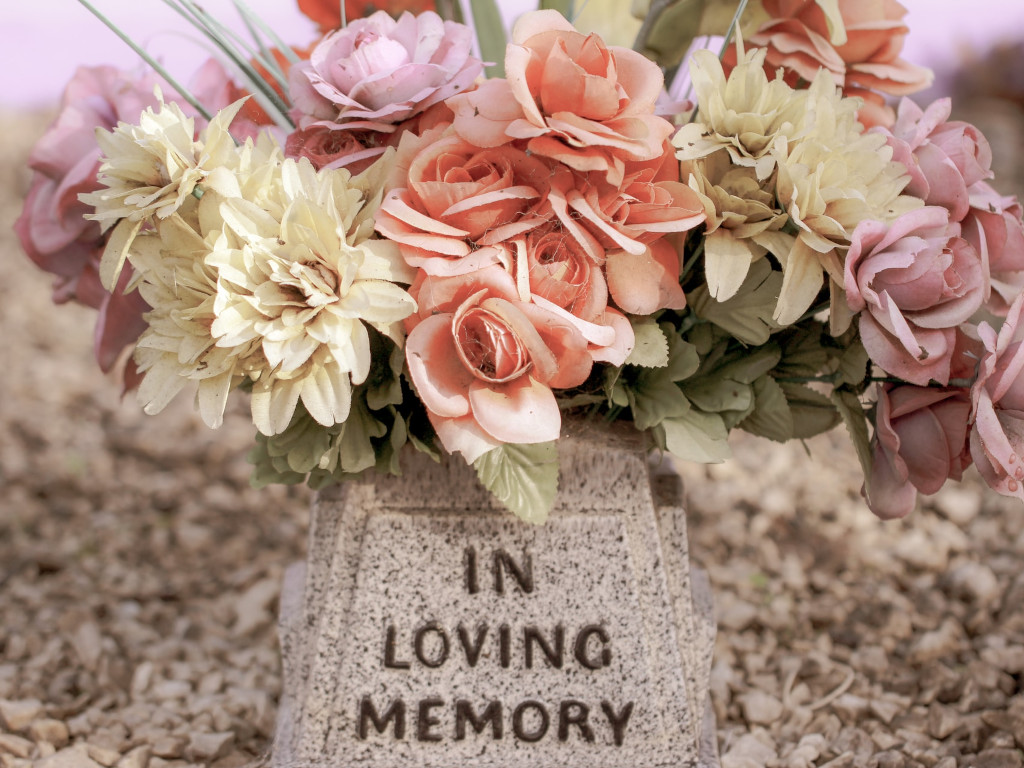SingaporeMotherhood | Parenting
October 2023
Losing Your Child: From Cope To Hope

From the euphoria you feel when you first learn that you’re pregnant to that life-changing moment when you finally hold that precious little miracle in your arms… there is no joy like it. Losing your child, however, is something that no parent wants to contemplate… because there is also no pain that compares.
The Child Bereavement Support Singapore (CBSS) is an organisation set up by parents who have lost their children. Its main objective is to provide support and friendship to other bereaved parents through a ‘befriending’ network, regular support meetings, and planned events. They share some advice on how best to cope with the loss of a child.
Let Yourself Grieve
The world around you collapses. And it is a frightening new universe, leaving you totally lost, powerless, and terrified. Try not to worry about feeling out of control and let yourself go with the ebb and flow of your own emotions. There is nothing wrong with crying hysterically or hiding under the covers — just do what you have to do to cope with each moment.
Grieving is a natural process that takes time to overcome. While medication may help you cope temporarily, this is a crutch that you will eventually have to let go of in order to heal properly.
The goal at the end of the process: facing up to reality of losing your child — being able to talk about your child and your feelings, being able to put their possessions away.

It is important to note that no two people grieve the same way. Many books written by grief experts mention certain ‘stages’ to go through. Although these ‘stages’ are very real, there is no set pattern to which each individual transitions through them.
Bereaved parents often find themselves going back and forth through the ‘stages’. They seem brave and strong one moment, then appear to ‘relapse’. In real life, there is simply no right or wrong way to grieve.
Be Patient with Yourself
There is no timeline for grieving and recovery. Be patient and give yourself the time you need. Experts say that it takes many years for a bereaved parent to work through the process. It can thus be very damaging to feel that you should have gotten over your grief just because a certain amount of time has passed.
Different circumstances and complications leading to the loss of each child also mean that getting over the loss is never straightforward. In other words, there is no comparison to the level of pain or the amount of time it should take to recover.
(See also: CRYSTALS HELPED THIS MUM HEAL FROM DEPRESSION. NOW SHE HELPS OTHERS WITH THEM)
However, it is equally important to pace yourself. If you don’t feel that you are strong enough to pack away your child’s belongings, wait. Some parents find that doing this helps them get closure. Others may decide to leave their child’s room intact. Remember that you can revisit these issues later, even years later, when you are ready.
Every little step helps. Do not feel pressured to conform to tradition or expectations of how you should ‘face reality’; let your emotions decide. Congratulate yourself for getting out of bed in the morning and not hiding in a darkened room. Consider each smile an achievement.
You Are Not Alone

Although nobody can feel the exact same emotions you do, find comfort in knowing that you are definitely not alone in losing your child.
First and foremost, there is your spouse. He feels the loss just as intensely and needs your support as much as you need his understanding. You may each desire your own space to grieve, but allow for time together where you can draw on each other’s strength and discuss each other’s feelings, regrets, hopes, and fears.
Ning was a happy and bubbly 16-month-old girl who passed away on New Year’s Eve in 1999 after a sudden bout of viral encephalitis. As the beginning of the new millennium was being celebrated, Ning’s parents Valerie and Gerard Lee were in the depths of despair.
“Gerard was one of my greatest sources of strength,” recalls Valerie. “Even while grappling with his own grief, he was always able to attend to my needs. He took time away from work and we travelled overseas, reflecting on our lives and discussing our feelings and fears. The trip was a bonding experience and we came to be whole again.” Also consider your extended family and close friends who can offer support.
(See also: FINDING STRENGTH AFTER LOSS: LISA CHONG OF STILLEN MATERNITY)
Seek Help
On top of that, medical social worker Jeanne Leo suggests reading books on grief and loss. “For some, reading about someone else’s experiences with loss can be very helpful. For others, learning about the normal responses to grief helps in their coping,” she says.
The CBSS website has a selection of guidebooks written by counsellors and psychiatrists, including personal accounts by bereaved parents.

Jeanne also advises parents to seek outside help when necessary after. “If your grief seems too much to bear, seek professional assistance to help work through it. It’s a sign of strength, not weakness, to seek help. Go to a support group — many people find groups to be a helpful place to share about their grief,” she says.
Valerie adds, “This is something that seems impossible to imagine in the initial weeks, months, and years. But those bereaved parents bear testimony to the saying ‘life goes on’, and that it is possible to be happy again eventually.”
Losing your child can leave you feeling like your life no longer has meaning. Left unchecked for too long, this can be both physically and psychologically damaging. Try to be kinder to yourself — eat properly, get enough sleep.
(See also: MISCONCEPTIONS ABOUT MISCARRIAGES CLEARED UP)
Find New Purpose
When you are ready, channel your energy towards a more physical activity. Early morning jogs can be therapeutic, especially if you are suffering from insomnia. Parents in the CBSS network also find comfort from volunteering at places like the Assisi Hospice or Rainbow Centre. Diverting your energy into physical activity, particularly in aid of others, can be helpful in alleviating pain.
You may have lost your only child and you may not be able to imagine having another. This is something that you and your spouse should discuss when you are both ready. Or you may already have other children who still need you. Either way, it is important to allow some continuity to help in your grieving process.
Keeping some things that belonged to the child you lost can connect you to them. Their siblings, both present and future, can share these toys and clothes, ensuring that they are remembered as part of your family.
This also helps to ensure that another child does not become a substitute for the one who was lost. This is something Patrick Wong and his wife, Michelle, feel keenly about. After losing their second child Lucas in 2000 to a genetic condition just a week after he was born, they decided to have another child. This was not to replace Lucas, but to continue building their family.
A year later, they had Sara, a girl, then a son named Zachary in 2003. Patrick reveals, “It is sometimes tempting to see Zachary as a divine gift, a heavenly ‘substitute’ for Lucas. But if there is one thing we have learnt, it is that each child brings different challenges… and blessings.”
Moving Forward after Losing Your Child

You will never ‘get over it’, stop loving your child, or stop being their parent just because they are no longer with you in life. This is a fact that will bring both pain and comfort, because you will always yearn for their return. However, you will always have a very special bond with that child, one that cannot be broken or taken away.
Create a memorial of your child; this is an invaluable way of acknowledging your child and remembering them with love. Memorials can take all forms, such as commissioning a plaque in their honour at a favourite zoo exhibit, making a donation to a charity in their name, planting a flowering bush in your garden, keeping framed footprints, or setting up a website to share their story and photos.
(See also: TAKEN TOO SOON – HOW LESLI BERGGREN HONOURS THE BEAUTIFUL MEMORY OF HER SON, NILS)
“Together, the family now commemorates special occasions such as Ning’s birthday and the anniversary of her death,” shares Valerie. “These rituals of coming together to celebrate Ning’s memory provide a way of incorporating the deeper meaning of her loss into our own life experience. While we should not wallow in the past or submit to our memories, we should always search for a way to value them. Treated as a treasure, these memories can give lasting pleasure, comfort and inspiration.”
The main source of information in this article can be found in ‘Farewell, My Child’, a publication by CBSS.
More Resources for Bereaved Parents
Bereaved parents can also find help and support at other websites recommended by CBSS, as well as via the following channels:
- Counselling and Care Centre: www.counsel.org.sg | 6536 6366
- Institute of Mental Health: Specialist Clinic B | 6389 2222 (24 hours)
- KK Women’s & Children’s Hospital: Mental Wellness Service | 6394 2205
- Mindful Space: Grief & Loss Support | 9783 7313
- O’JOY: Mental Health Services | 6749 0190
- Samaritans of Singapore: www.sos.org.sg | 1-767 (24 hours)
- Viriya Community Services: www.viriya.org.sg | 6285 8033
- Whispering Hope Singapore: www.whisperinghope.sg | 8668 2032
All content from this article, including images, cannot be reproduced without credits or written permission from SingaporeMotherhood.
Follow us on Facebook, Instagram, and Telegram for the latest article and promotion updates.





